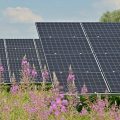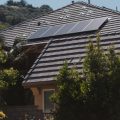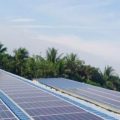Photovoltaic (PV) arrays, also known as solar systems, have increased in popularity as the price of solar panels continues to fall, making it more cost competitive with more traditional forms of energy generation. Additionally, solar has long been recognized as a way to preserve the environment around us without giving up many modern amenities that we are all accustomed to. Unfortunately, because many homeowners have not been closely exposed to the technology, they are unsure how exactly it works and whether or not it would be a good fit for them. As with all things, becoming educated on the topic helps to make more informed decisions. So, what things do you need to know before deciding whether or not you should have a solar system installed on your home or business?
- What Are The Components Of A Typical Solar System?
- How Do Solar Panels Generate Electricity?
- What Role Does Your Utility Play In This Process?
- Can A Home Or Business Be Run Exclusively On Solar?
- A Solar System Will Produce Electricity Even If It’s Cloudy
- What Are The Advantages Of Solar?
- Paying For Annual Maintenance Can Save You Money In The Long Term
What Are The Components Of A Typical Solar System?
Most PV systems are made up of a few key components. First, the most commonly known pieces are the solar panels. These are the modules that actually generate electricity. Next, we look at the solar inverter. An inverter is the component that converts direct current (DC) from the solar panels to alternating current (AC) which is the type of electricity that most homes and businesses utilize. Other common components include the racking system which holds the solar panels in place as well as the wiring that carries electricity from the panels to your home.
How Do Solar Panels Generate Electricity?
The process of generating electricity from a solar panel is quite fascinating. Simply put, many silicon wafers compose a single solar panel. These silicon wafers go through a process called “electron doping”. This process allows an electrical current to be created when they are in the presence of sunlight. This electrical current is what ultimately turns into the electricity that your home or business can use.
What Role Does Your Utility Play In This Process?
The biggest influence that a utility typically has in the solar building process is the interconnection agreement. This is the document that clearly defines the size and scope of the solar system being interconnected into the grid. In some cases, some utilities may have a limit on how much solar can be interconnected onto your local grid.
Can A Home Or Business Be Run Exclusively On Solar?
A home or business can be run exclusively on solar. Typically, arrays on buildings that are run exclusively on solar are built to meet the total demand during the time of the year when the least amount of sunlight is received. This process is further assisted by net metering policies in some areas. Net metering is the process of exporting electricity to the grid when your solar system generates more electricity that your home is currently using and then crediting this electricity to your power bill at the end of every month.
A Solar System Will Produce Electricity Even If It’s Cloudy
Many homeowners falsely believe that a solar system will not produce electricity if they live in a relatively cloudy area. While clear skies and good sunlight are the best ingredients for maximizing solar production, a solar system can still produce electricity even on a cloudy day. This is because solar technology has advanced to the point where the panels can produce electricity from a variety of wavelengths of light that are able to penetrate clouds. Humans are only able to see visible light which is only a fraction of the total light spectrum. The key to deciding on whether or not your home is a good candidate for a PV system is to have a solar power Brisbane professional conduct a study to find out the average annual irradiance that hits your home. This figure will quickly tell you whether the solar system would be a good fit for you.
What Are The Advantages Of Solar?
One of the biggest advantages of a solar system is resiliency. Typically, if the electrical grid should go down in the case of a weather emergency or mechanical failures, a solar system is still able to produce electricity that can then be fed directly into your home or business. This is especially important for those who rely on equipment that runs on electricity to survive such as keeping medicine cold or utilizing other medical devices. It is for this reason that hospitals are increasingly investing in alternative energy solutions including solar and battery storage systems.
Paying For Annual Maintenance Can Save You Money In The Long Term
While solar systems do not have many mechanical moving parts, they should still be regularly maintained and monitored. Typically, the solar installation company that you research and choose will also be able to perform annual maintenance on the solar system. This is helpful because it allows any defective parts to quickly be replaced or upgraded as necessary. This helps to maximize the output of the solar system and save you the maximum amount of money on your electric bill. Additionally, personally monitoring your system allows homeowners to proactively call the installation company to make repairs if a component of the system should fail. Luckily, many aspects of a solar array are covered by warranties of at least five years.
Every homeowner or business owner’s situation is slightly different from that of their peers. Even small things like the orientation of your home can be a crucial factor in deciding whether or not to install a PV system. By becoming informed about solar systems, an educated decision can be made about whether or not it makes sense for your family or business.






